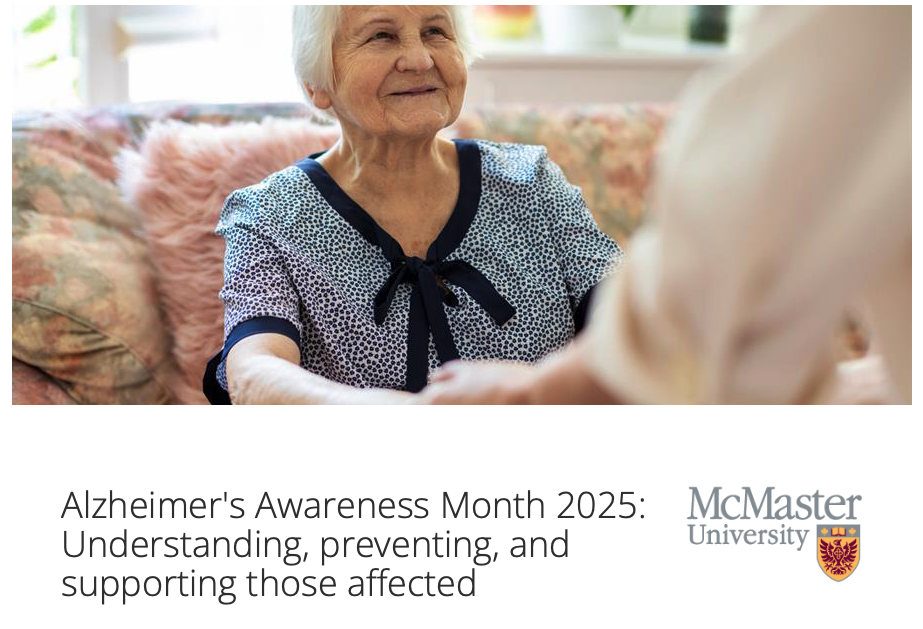[News] Alzheimer's Awareness Month 2025: Understanding, preventing, and supporting those affected

January is Alzheimer's Awareness Month in Canada. It is a time dedicated to raising awareness about Alzheimer's disease, understanding its impact on individuals and families, and exploring ways to reduce the risk of developing the condition. This month serves as an important reminder to educate ourselves, support research, and take action to promote brain health at every stage of life.
What Is Alzheimer's Disease?
Alzheimer's disease is the most common form of dementia, affecting millions of people worldwide. It is a progressive neurological disorder that primarily impacts memory, thinking, and behaviour. The symptoms can begin subtly, often starting with mild memory loss or confusion, and over time, the disease progresses to more severe stages, impairing an individual’s ability to carry out everyday activities.
While the exact cause is still not fully understood, genetics, age, and environmental factors all contribute to the development of the disease.
Alzheimer's not only affects the individual diagnosed but also takes a significant toll on families and caregivers. As the disease advances, caregivers often find themselves playing an essential role in supporting loved ones, which can bring both emotional and physical challenges.
The growing impact of Alzheimer's
In Canada alone, over 600,000 people are living with dementia, with Alzheimer's being the most prevalent form. As the population ages, this number is expected to rise dramatically. By 2031, it’s estimated that the number of Canadians with dementia will surpass 1 million, creating a pressing need for increased awareness, research, and support systems.
Alzheimer’s also represents a substantial economic burden, as healthcare costs for people with dementia, including medical care and long-term care, are significant. The financial and emotional strains can be overwhelming for families, highlighting the importance of early diagnosis and access to supportive resources.
Preventing Alzheimer's: What can you do?
While there is currently no cure for Alzheimer's disease, research has shown that specific lifestyle changes can help reduce the risk or delay the onset of symptoms. Many of these strategies are tied to overall brain health and share similarities with practices promoting general well-being as we age. Below are several key strategies that can support brain health and potentially lower the risk of developing Alzheimer's disease.
-
Date
Feb 11, 2025
-
By
McMaster University
Newsletter
Sign up for the Healthy Aging CORE Alberta e-news to keep up-to-date with activity from the platform and the Community-Based Seniors Services (CBSS) sector across the province.
